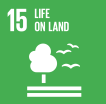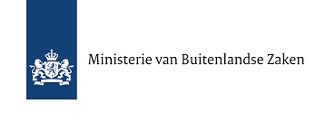Social Innovation for Regreening & Resilience in Low Resource Environments
Essay by Wendelien Tuijp & Anna Bon
This essay is the authors’ version of a chapter in the book The Connected World – Insights from 100 Academics on How to Build better Connections, edited by Ivar Vermeulen, 2023, VU University Press Amsterdam.
How to “protect, restore and promote sustainable use of terrestrial ecosystems, sustainably manage forests, combat desertification, and halt and reverse land degradation and halt biodiversity loss?” is one of the global challenges of our generation in the third decade of this Millenium, according to the UN’s Sustainable Development Goals. In our ongoing action research program W4RA, we explore this question. Since 2017 we are working with a group on innovative farmers – women and men – in rural regions in Burkina Faso.

Burkina Faso is a landlocked country, located in West Africa’s Sahel region, It has a population of 20.000, of whom 80% is dependent on agriculture. With a high population growth figure, and in the light of a rapidly changing, concerns for food and nutrition security are of utmost importance. However, due to a highly instable political situation — there were two coups d’état in 2022 – and frequent terrorist attacks, not much can be expected from governmental policy.
Surprisingly, despite the uncertainty of this Burkinabe society, there is also room for resilience and innovation. In the western an northern regions of Burkina Faso, groups of innovative women have organized themselves into cooperatives and taken innovative steps to set up their own business in so-called non-timber forest products: products from the forest such as nuts, fruits, grains and honey. There is a growing domestic demand for these products, and the women are trying to make a good living by exploitation of these products.
Non-timber forest-products, also known as tree products, have multiple benefits for people’s diets and for the environment. By nature, their exploitation raises the economic value of trees and natural forests. This leads to protection and maintenance of forests and natural vegetation and brings immediate advantages to the environment, increased biodiversity and soil restauration. From an economic point of view, this expoitation increases economic activities and resilience of women and their families in rural areas. According to various studies, the nutritional value of tree products is high and it adds to a nutritious diet for children and adults. In short, non-timber forest products help regreen the Sahel: trees can help restore resilience in the Sahel. However, the sales of non-timber products is still marginal and deserves a good awareness campaign. Given the importance of this business, how can we support these women in their efforts to become good entrepreneurs?
To do so, an action-research project was organized by Réseau MARP, a local NGO in Burkina Faso, who is a long-term partner of the VU. Two workshops of five day seach with eighteen women- entrepreneurs in tree products from three different rural regions: Zondoma (centre), Passoré (north) and Sangui (west), were organized in February and May 2022. The purpose of these gatherings was to explore design solutions in support of local entrepreneurship. During the workshops, focus group discussions were held, analysis was done of the barriers and challenges, and innovative solutions were explored. Local radio journalists from the regions were invited to help the women groups to design a plan for marketing and radio broadcasts, to help increase sales and raise awareness on the benefits of their tree products.
We used our experienced, open-ended collaborative, adaptive, iterative approach to analyse the context, capture the challenges and elicit the needs and requirements for the design and deployment of what we call socio-technical solutions. The workshop as a social space for brainstorming proved fruitful by its location in a rural area, and by its informal and open communication appraoch. At the end of the workshop, the women teams had made impressive plans and strengthened their collaborations. The last workshop day was concluded with a exhibition of non-timber forest products, brought by the women in their bags. The sales pitch by each of the participants was a good and joyful learning experience for all. A small impact analysis by Réseau MARP, later that year showed the impact of this small project to potentially inform and attract 10.000 new customers through radio campaigns, informing them of the large benefits of non-timber forest products.
What have we learned from this small research? The idea was to contribute to tackling a real-world challenge, in a very modest way, without the traditional development aid approaches such as “knowledge transfer” or “capacity building”, simply by organizing the event, connecting people and facilitating local innovation and knowledge sharing through collaborative, innovative co-design of possible ‘socio-technical’ solutions. Through the workshops have learned to appreciate the strength and innovative capacity of local innovators – women and men – in open-ended brainstorm sessions, even in the absence of modern technologies, large funds, microfinancing or governmental support.
We have learned from the local innovators that it is indeed possible to protect, restore and promote sustainable use of terrestrial ecosystems, sustainably manage forests, combat desertification, and even halt and reverse land degradation and halt biodiversity loss. By helping local innovators scaling up existing successes and improving communication among the local communities, we provide a small contribution to this local innovation process.



